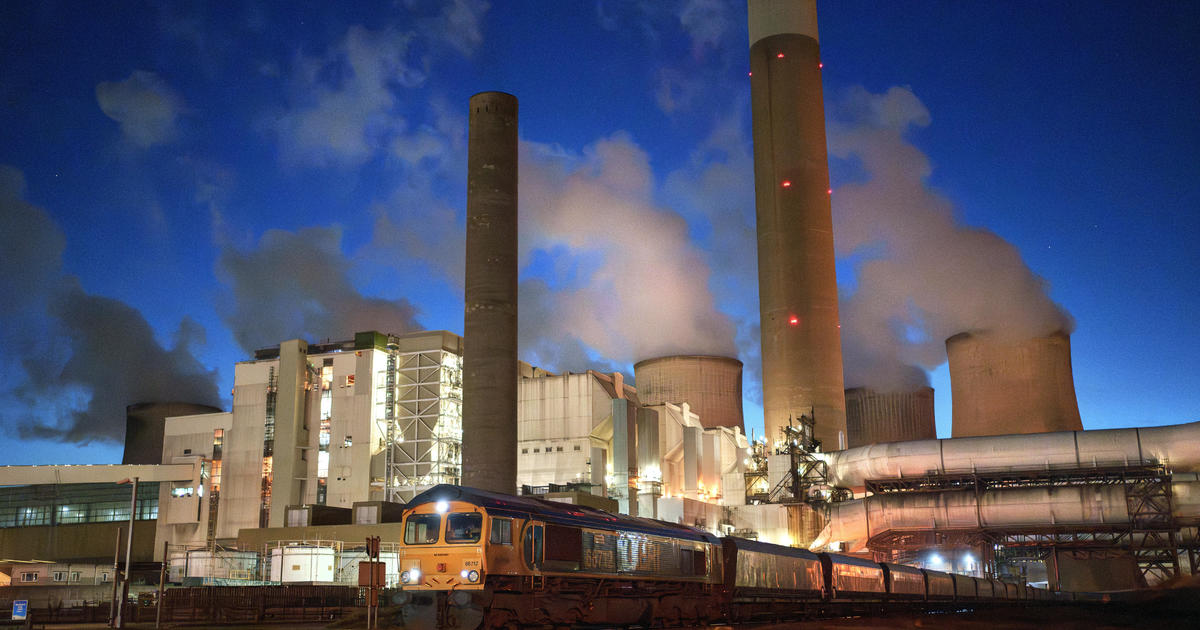The United Kingdom’s decisive move to completely phase out coal-fired power generation marks a significant milestone in its commitment to combating climate change and transitioning towards a cleaner energy future. The permanent closure of the Ratcliffe-on-Soar power station, the last of its kind in the country, signals the end of a 140-year reliance on this highly polluting fossil fuel. This achievement makes the UK the first major global economy to entirely eliminate coal from its electricity generation mix, setting a powerful precedent for other nations to follow suit in their decarbonization efforts. This transition, while momentous, presents both opportunities and challenges, requiring careful consideration of energy security, economic impacts, and the ongoing need for robust environmental policies.
The End of an Era: Britain’s Coal Power Plant Closure
A Historical Perspective
The closure of Ratcliffe-on-Soar, after decades of service powering millions of homes, represents the definitive end of an era. For over 140 years, coal fueled Britain’s industrial revolution and subsequent economic growth. From Thomas Edison’s pioneering Holborn Viaduct plant in 1882, powering the City of London’s streetlights, to the sophisticated technology of Ratcliffe-on-Soar, coal has been an undeniable cornerstone of the nation’s energy infrastructure. The sheer scale of this transition – a complete shift away from a century-and-a-half of reliance on a single fuel source – is unprecedented for a major economy. This isn’t merely about turning off a switch; it represents a fundamental recalibration of the UK’s energy landscape, demanding meticulous planning and adaptation across multiple sectors. The emotional toll on long-time workers and communities tied to the coal industry underscores the human dimension of such transformative change.
Environmental Significance
The phase-out of coal is fundamentally driven by the devastating environmental impact of this fossil fuel. As the most carbon-intensive energy source, coal significantly contributes to greenhouse gas emissions, exacerbating climate change. Beyond CO2, the combustion of coal also releases harmful pollutants like mercury, arsenic, and particulate matter, negatively impacting air and water quality and posing severe health risks. The UK’s decision demonstrates a firm commitment to its climate targets, aiming for net-zero emissions by 2050. By eliminating this significant source of greenhouse gas emissions, the UK significantly enhances its ability to meet these ambitious goals, inspiring similar commitments from other developed nations facing comparable environmental challenges. This action serves as a potent reminder of the crucial role of energy transition in addressing the global climate crisis.
Transitioning to a Clean Energy Future: Challenges and Opportunities
The Road Ahead: Ensuring Energy Security
While celebrating the phase-out of coal, the UK must ensure a seamless transition to ensure its energy security. Replacing coal-fired generation necessitates a reliable and diversified energy mix, relying on renewable sources such as wind, solar, and nuclear power. Robust energy storage solutions are crucial to handle the intermittent nature of renewable energy sources and ensure grid stability during peak demand periods. Furthermore, investment in smart grids, improved transmission infrastructure, and energy efficiency measures are paramount to ensure a secure and reliable energy supply during this transformation. Successfully managing this transition hinges on innovative technologies, effective policymaking, and substantial investments in new infrastructure.
Economic Impacts and Job Creation
The closure of coal-fired power plants will inevitably affect the workforce and local economies associated with this industry. Retraining programs and investments in new, green-energy related jobs are essential to support workers and communities impacted by this shift. Investing in green energy technologies fosters job creation in areas like renewable energy installation, maintenance, and research, as well as boosting industries involved in developing smart grids, energy storage systems, and related technologies. However, ensuring a just and equitable transition necessitates careful planning to avoid socioeconomic disparities, offering employment opportunities to affected communities and preventing economic hardship during this significant sector restructuring.
Global Leadership and International Cooperation
Setting a Precedent for Others
The UK’s achievement places it at the forefront of global decarbonization efforts. It serves as a compelling demonstration of the possibility of transitioning away from fossil fuels within a relatively short timeframe for a major economy. This example can spur ambitious climate policies and expedite coal phase-outs in other countries. While other nations have phased out coal, the UK’s success as a member of the G7 significantly raises the profile and increases the political pressure on other developed nations to commit to similar ambitious decarbonization measures.
International Collaboration on Climate Action
However, phasing out coal domestically is merely one piece of the climate puzzle. International collaboration remains paramount in addressing this global challenge. The UK’s success in reducing coal-based electricity generation highlights the urgent need for enhanced international cooperation in combating climate change. Sharing best practices and technologies across borders is crucial. Further collaborations in global climate change mitigation policies can contribute toward achieving global emission reduction targets and avoiding a catastrophic climate future. Ultimately, addressing this multifaceted challenge necessitates sustained global collective action and coordination.
Takeaway Points:
- The UK’s complete phase-out of coal-fired power generation represents a landmark achievement in its commitment to combatting climate change.
- This transition underscores the need for a reliable, diversified energy mix relying heavily on renewable energy sources.
- Careful planning and investment are essential to mitigate economic and social impacts on communities affected by the coal industry’s decline.
- The UK’s example serves as a powerful precedent and catalyst for increased international cooperation on decarbonization efforts.




